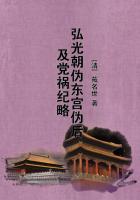"The news of the death of the Emperor Leopold, in the midst of the other distresses of Her Majesty, afflicted her very deeply; the more so because she had every reason to think he fell a victim to the active part he took in her favour. Externally, this monarch certainly demonstrated no very great inclination to become a member of the coalition of Pilnitz. He judged, very justly, that his brother Joseph had not only defeated his own purposes by too openly and violently asserting the cause of their unfortunate sister, but had destroyed himself, and, therefore, selected what he deemed the safer and surer course of secret support. But all his caution proved abortive. The Assembly knew his manoeuvres as well as he himself did. He died an untimely death; and the Queen was assured, from undoubted authority, that both Joseph and Leopold were poisoned in their medicines.
"During my short absence in England, the King's household had undergone a complete change. When the emigration first commenced, a revolution in the officers of the Court took place, but it was of a nature different from this last; and, by destroying itself, left the field open to those who now made the palace so intolerable. The first change to which Irefer arose as follows:
"The greater part of the high offices being vacated by the secession of the most distinguished nobility, many places fell to persons who had all their lives occupied very subordinate situations. These, to retain their offices, were indiscreet enough publicly to declare their dissent from all the measures of the Assembly; an absurdity, which, at the commencement, was encouraged by the Court, till the extreme danger of encouraging it was discovered too late; and when once the error had been tolerated, and rewarded, it was found impossible to check it, and stop these fatal tongues. The Queen, who disliked the character of capriciousness, for a long time allowed the injury to go on, by continuing about her those who inflicted it. The error, which arose from delicacy, was imputed to a very different and less honourable feeling, till the clamour became so great, that she was obliged to yield to it, and dismiss those who had acted with so much indiscretion.
"The King and Queen did not dare now to express themselves on the subject of the substitutes who were to succeed. Consequently they became surrounded by persons placed by the Assembly as spies. The most conspicuous situations were filled by the meanest persons--not, as in the former case, by such as had risen, though by accident, still regularly to their places--but by myrmidons of the prevailing power, to whom Their Majesties were compelled to submit, because their rulers willed it. All orders of nobility were abolished. All the Court ladies, not attached to the King and Queen personally, abandoned the Court. No one would be seen at the Queen's card-parties, once so crowded, and so much sought after.
We were entirely reduced to the family circle. The King, when weary of playing with the Princesse Elizabeth and the Queen, would retire to his apartments without uttering a word, not from sullenness, but overcome by silent grief.
"The Queen was occupied continually by the extensive correspondence she had to carry on with the foreign Sovereigns, the Princes, and the different parties. Her Majesty once gave me nearly thirty letters she had written in the course of two days, which were forwarded by my cara Inglesina--cara indeed! for she was of the greatest service.
"Her Majesty slept very little. But her courage never slackened; and neither her health, nor her general amiableness, was in the least affected. Though few persons could be more sensible than herself to poignant mortification at seeing her former splendour hourly decrease, yet she never once complained. She was, in this respect, a real stoic.
"The palace was now become, what it still remains, like a police office.
It was filled with spies and runners. Every member of the Assembly, by some means or other, had his respective emissary. All the antechambers were peopled by inveterate Jacobins, by those whose greatest pleasure was to insult the ears and minds of all whom they considered above themselves in birth, or rank, or virtue. So completely were the decencies of life abolished, that common respect was withheld even from the Royal Family.
"I was determined to persevere in my usual line of conduct, of which the King and Queen very much approved. Without setting up for a person of importance, I saw all who wished for public or private audiences of Their Majesties. I carried on no intrigues, and only discharged the humble duties of my situation to the best of my ability for the general good, and to secure, as far as possible, the comfort of Their Majesties, who really were to be pitied, utterly friendless and forsaken as they were.
"M. Laporte, the head of the King's private police, came to me one day in great consternation. He had discovered that schemes were on foot to poison all the Royal Family, and that, in a private committee of the Assembly, considerable pensions had been offered for the perpetration of the crime. Its facility was increased, as far as regarded the Queen, by the habit to which Her Majesty had accustomed herself of always keeping powdered sugar at hand, which, without referring to her attendants, she would herself mix with water and drink as a beverage whenever she was thirsty.
"I entreated M. Laporte not to disclose the conspiracy to the Queen till I had myself had an opportunity of apprising her of his praiseworthy zeal. He agreed, on condition that precautions should be immediately adopted with respect to the persons who attended the kitchen. This, I assured him, should be done on the instant.
"At the period I mention, all sorts of etiquette had been abolished.














